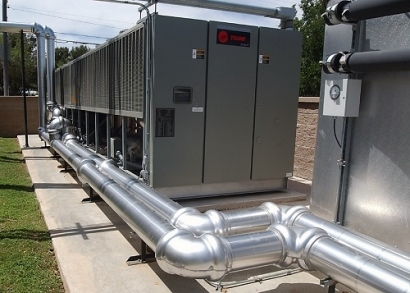
From microgrids to machine autonomy, energy storage to hybrid renewables, a set of 22 capital goods companies are assessed on how well they are harnessing trends such as electrification, digitization and automation to help meet the Paris Agreement commitment to keep global warming below 2°C.
Carole Ferguson, Head of Investor Research, CDP said, “We are on the verge of a low carbon industrial revolution. Regulators and markets are demanding the decarbonization of high emitting sectors and the industrial corporations at the end of the chain are looking to their suppliers to find innovative new solutions and equipment. The good news is that the capital goods sector is starting to meet this challenge.”
The report analyzes companies in the ‘electrical equipment’, ‘industrial conglomerates’ and ‘heavy machinery’ parts of the sector, and highlights Schneider Electric, Vestas and CNH Industrial as leaders in their fields.
The report highlights electrification asthe largest opportunity for the capital goods sector, with microgrids and energy storage systems ranked as the technologies with the greatest potential for green economic transformation. The overall demand for energy storage is set to grow from current levels of 10 GW to 125 GW by 2030, creating a potential investment opportunity of $103 billion.
The research shows Schneider, ABB, Mitsubishi Electric, Siemens and Honeywell leading the way in identifying and investing in microgrids, hybrid renewable and energy storage.
The reports states renewable energy is an important profitability driver for several companies, with Vestas leading in hybrid renewables and large-scale digitalization.
The report also shows the main transition risk for the sector is managing emissions down the value chain. Scope 3 accounts for over 90 percent of sector emissions, however corporate disclosure and management of these emissions are poor. Less than a third of the companies analyzed have a scope 3 emissions reduction target.
Ferguson stated, “Despite the innovation demonstrated by many of these companies, it is disappointing to see that disclosure and management of emissions in the value chain are lagging. While these scope 3 emissions can be difficult to pinpoint, they are of huge importance to the capital goods sector given the wide markets these companies supply. Those companies that do not measure these emissions leave themselves exposed to risks and miss out on key opportunities from changing demands and regulation in the end markets they serve.”
The CDP report assesses companies across four key areas aligned with the recommendations from Mark Carney’s Task Force on Climate-related Financial Disclosures (TCFD). As the TCFD recommendations become mainstream, investors will increasingly expect capital goods companies to disclose how they are adjusting their business models to manage transition risks, while taking advantage of the opportunity to generate revenue from the global transition to a low-carbon economy.

